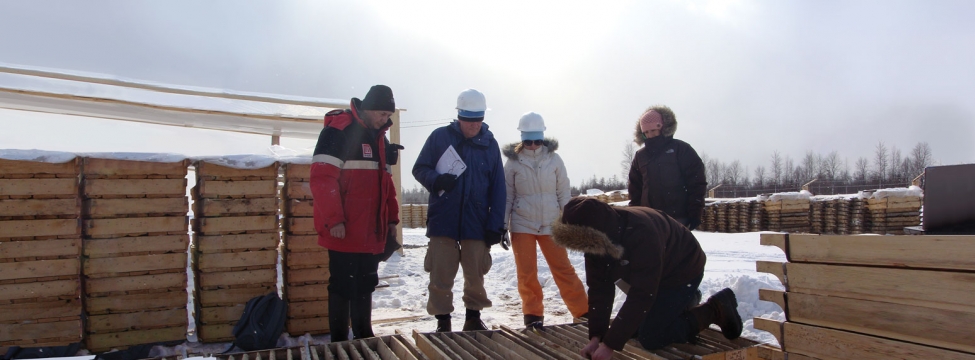To serve you better, our new website displays information specific to your location.
Please visit the site and bookmark it for future use.
Evaluating CIS projects
When evaluating projects in Russia, Kazakhstan and other CIS countries, a key challenge is that their data and technical studies have been developed following resource reporting guidelines that differ from the standards many international investors or consultants use. SRK has been involved in CIS projects for many years and has developed approaches to help clients evaluate and optimise projects.
SRK has made these key observations:
- While the quality assurance and control systems often did not involve duplicates or standards, independent laboratory checks involving 5-10% of all samples provide sufficient insight into the accuracy of the samples. However, a key challenge can come when the core recovery is poor, due to the extensive use of single-tube core barrels
- Often, far more geological data, including underground exploration, is available with CIS projects than with international projects, providing a greater appreciation of the geology
- Soviet exploration programs were typically better controlled and guided than comparable international projects at the time, with data spacing guided by the assessment of deposit complexity. Where the assessment was appropriate, the data spacing often matched that required to meet geostatistical requirements. Also, while the drill core is often no longer available, the drillhole “passports” are stored in either corporate or state archives
- Resource estimates are typically derived using standardised polygonal methods, which generally produce comparable global results to more sophisticated methods but which can in some cases produce less reliable local estimates
- There are often multiple technical studies available, though data required internationally (e.g. the Bond Work Index) may not be available. It is important to understand what studies exist to help plan future work and to explain differences if new studies give different results.
- As the technical studies are rarely based on computerised models, the effort involved in updating life-of-mine plans or evaluating alternative cut-off grades can result in mines operating sub-optimally
- Use existing data as much as possible
- Advise and supervise verification drilling to check historic data and infill studies to collect missing data
- Computerise the data to evaluate alternatives quickly
- Develop international style scoping, prefeasibility and feasibility studies in conjunction with Russian studies
- Benchmark the projects against comparable international projects
- Help the client implement the changes needed to realise the planned performance targets
- Help CIS clients raise international debt and equity finance through advising on how the studies can meet the levels of confidence and accuracy required
David Pearce: dpearce@srk.ru.com
|
You can download a PDF of the entire |
PDF A4
|
PDF Letter
|
|
|
|
Our newsletters focus on specific areas of interest to earth resource professionals and clients. Each is available as an Adobe Acrobat PDF file. If you don't already have Adobe's PDF reader, you can download it free.


